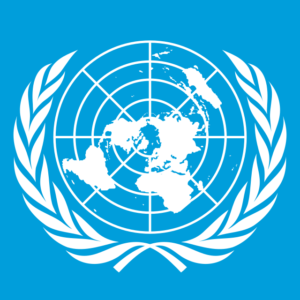
by Wilton H. Strickland
In some of my previous articles (including my last one), I have discussed how the plain language of the US Constitution has very little influence over what the federal government does on a daily basis. As the US Supreme Court itself noted long ago, the Constitution “must be understood as an Eighteenth-Century sketch of a government hoped for, not as a blueprint of the Government that is. . . . Subtle shifts take place in the centers of real power that do not show on the face of the Constitution.” Youngstown Sheet & Tube Co. v. Sawyer, 343 U.S. 579, 653 (1952) (Jackson, J., concurring).
We witness the same dynamic with regard to the UN Security Council, which in December of 2023 passed a resolution to provide additional humanitarian assistance to the Gaza Strip. What makes this resolution intriguing is that it was adopted even though two of the Council’s Permanent Members — the United States and Russia — abstained from voting. The plain language of the UN Charter states that a non-procedural resolution such as this requires that all of the Permanent Members vote in favor of it:
Decisions of the Security Council on all other matters shall be made by an affirmative vote of nine members including the concurring votes of the permanent members[.]
UN Charter art. 27, para. 3.
An abstention by just one Permanent Member should defeat a resolution, yet here we have two such abstentions that failed to defeat this resolution. How did this happen? The answer lies in the early days of the United Nations, when power politics refused to be constrained by mere rules.
At the outset of the Cold War in 1950, President Harry Truman decided that the United States must intervene in Korea to defend the South from the invasion by the communist North. He saw this need as so urgent that he did not bother to request a declaration of war from Congress (birthing another illicit practice), so he styled the war effort as a “police action” under the auspices of the newly christened United Nations. However, this little maneuver faced a big obstacle: the Soviet Union, which had absented itself from the Security Council in protest over the fact that Taiwan, rather than communist China, occupied a Permanent Member seat. The Soviet Union believed, with good reason, that its absence would immobilize all major functions of the Security Council due to the requirement of its affirmative vote. The Security Council treated the Soviet Union’s abstention as irrelevant and adopted Truman’s resolution anyway. As a result, the Soviet Union made sure never to miss another vote, as well as to veto any resolution it opposed.
To this day, the Security Council treats an abstention by a Permanent Member as irrelevant and requires such a Member to vote against a resolution in order to defeat it. This practice is directly at odds with the UN Charter, but so it goes.
It is also worth noting that when the US Supreme Court concluded in Youngstown that the Constitution is merely a “sketch of a government hoped for, not as a blueprint of the Government that is,” it was discussing whether President Truman could unilaterally seize control of steel mills in order to support the Korean “police action.” Perhaps this is why the founders of the United States attempted to limit the war power, whose abuse causes harm both abroad and at home.
Please note that my goal is not to criticize or praise the Gaza resolution itself, whose merits are far beyond the scope of this blog. My only goal is to draw attention to how the rule of law is a fragile thing, so fragile that even the most plain and fundamental rules within Constitutions and Charters are cast aside when power politics demand it.


